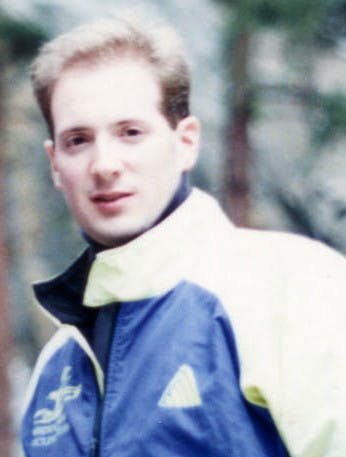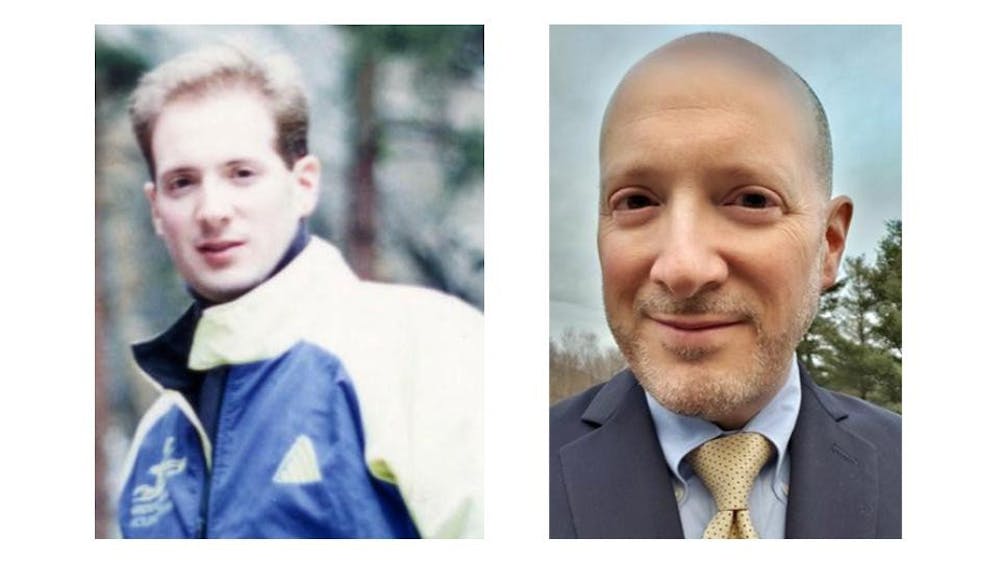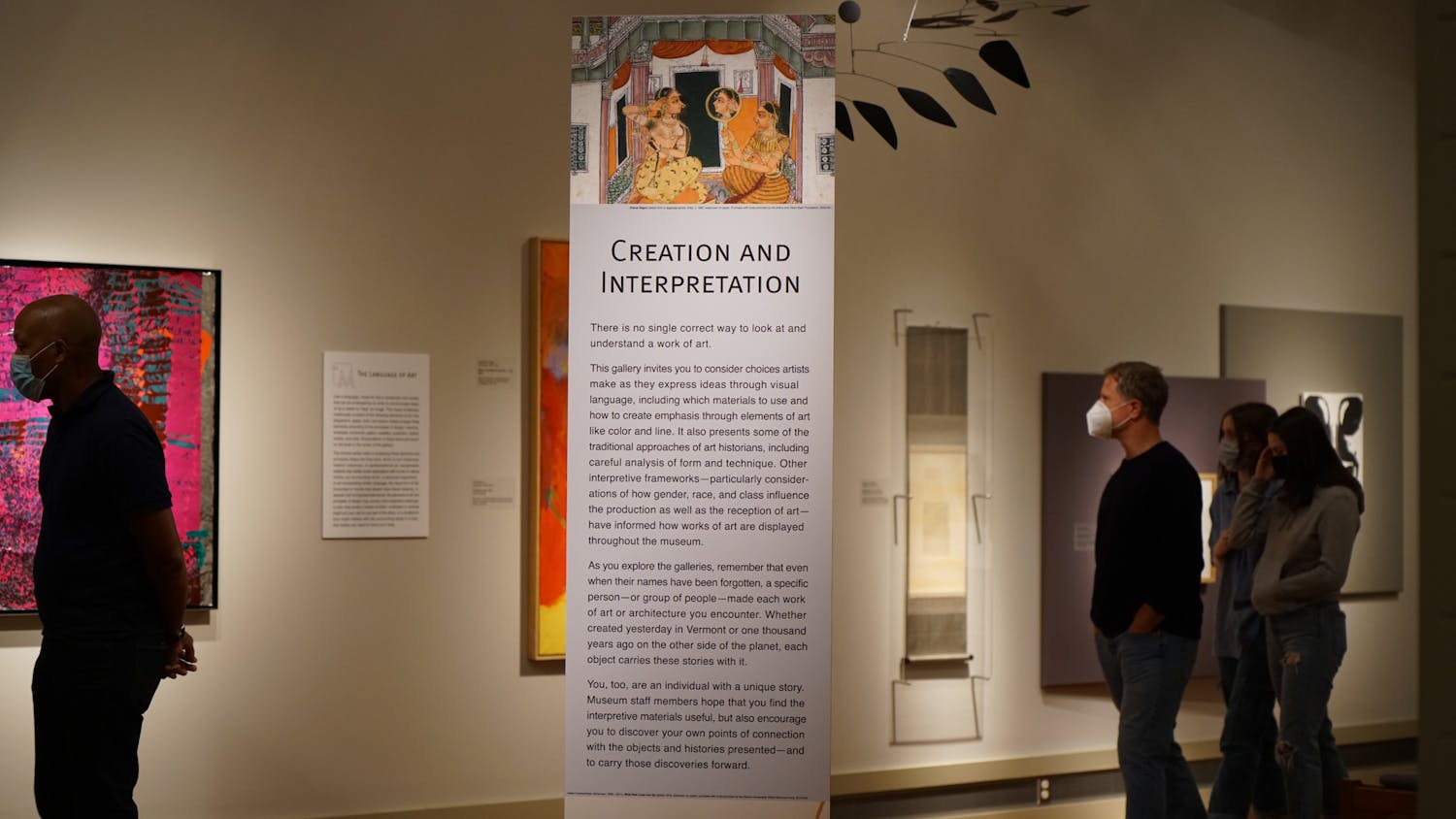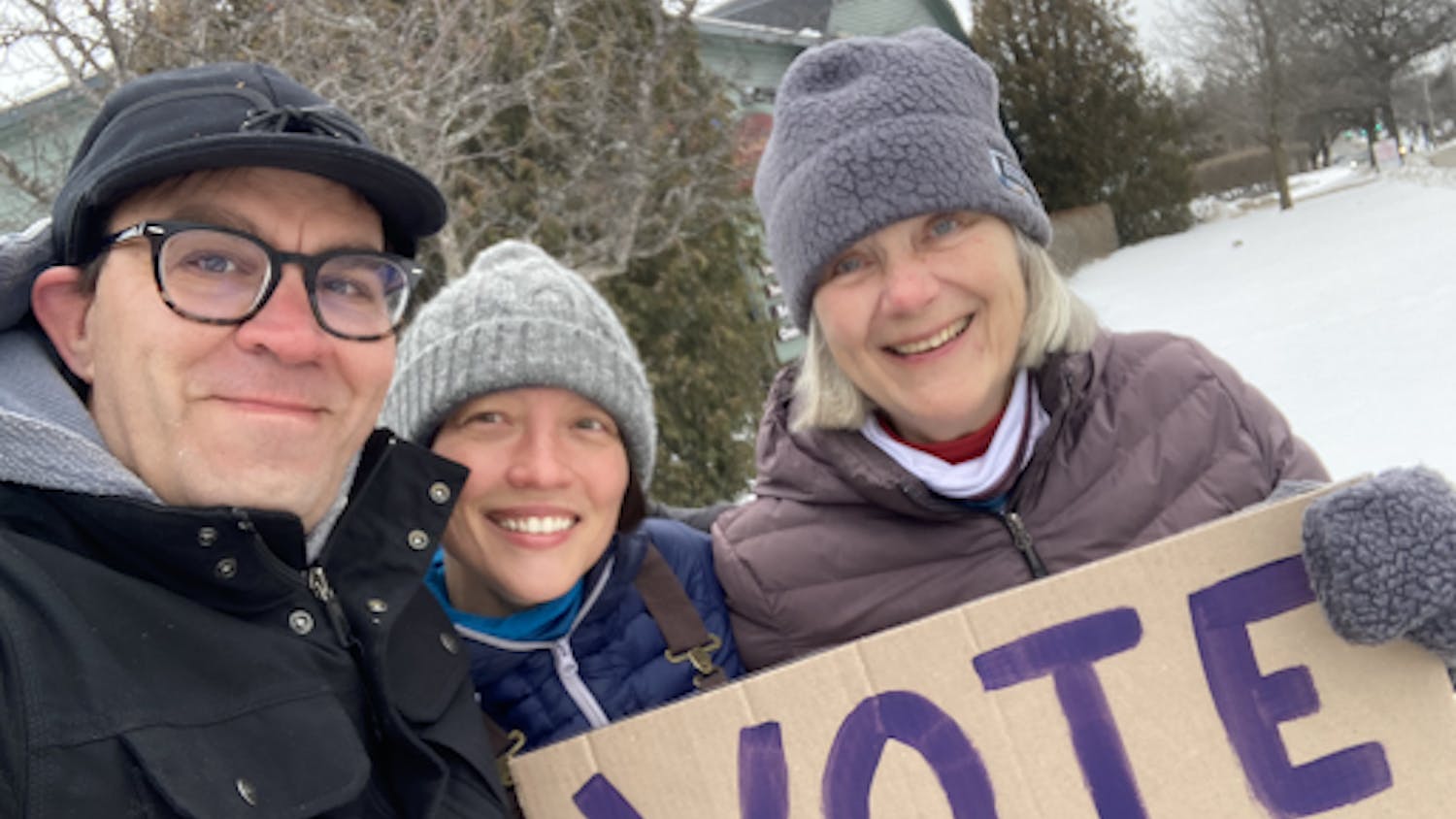Douglas Perkins ’94 majored in economics and minored in art history. He was a cyclist and lived in Colorado for a while. Now he is the associate director of operations and finance at the Middlebury Museum of Art. He has studied and worked at Middlebury for over twenty years. This interview has been edited for length and clarity. You can listen to the full interview here.

Douglas in college

Recent portrait of Douglas
Q: What’s a typical day at the Middlebury Museum of Art now?
A: What I like about the museum is that most days are not typical. I handle the financial end of the museum almost every day, managing budgets and getting people paid. Aside from that, it can be anything from preparing content for social media to mundane things like making sure that copy machines still work, or buying artworks at auctions. It really runs the gamut, but every day is different.
Q: Is this job what you imagined yourself doing when you were in college?
A: Actually, it’s not. When I got to Middlebury, I declared myself as an economics major. I had aspirations of going into finance and investment. In fact, when I graduated from college, I had an invitation from a capital management firm in New York. I was a cyclist at Middlebury and took a detour for a bit. I moved to Colorado and I was a semi-pro cyclist for a few years, and that provided a break in my plans to give me some flexibility to look at some different things. I actually moved back to Middlebury, and was working as a bartender and waiter at Mr. Ups here when the opportunity at the museum came up. And it was really just a two month thing, and two months turned into twenty years.
Q: What inspired you to become a cyclist and how did you transition from that to the museum work now?
A: I started cycling when I was in high school and continued in college with Middlebury’s club team. I fell in love with it. In spring we would have circuit racing with other colleges. I decided that I wanted to pursue that as a living. I moved to Colorado just after graduation but I found myself daydreaming about summertime in Vermont. I knew I had to move back, so I did, and continued to race here for a bit. In 2001, I had gotten tired of the bartending industry. I was constantly having to deal with liquor control problems. I had lots of college kids coming down the hill and trying to drink with their fake IDs. I said, “This is not the interaction I want to have with people.” So I left the restaurant. A friend of mine called me up and said “One of my coworkers at the museum is going on maternity leave and we need somebody to fill in. Would you be interested?” So I applied and they hired me for two months. My friend actually left the museum for another job in those two months, so I moved into her job and have been there ever since.
Q: What inspired you to come back to Middlebury? What is special about it?
A: Middlebury has a reputation. I have heard stories of people hiking in Mongolia or South America, and they come around a corner and see people wearing Middlebury sweatshirts, and it’s like seeing old friends, even if you’ve never met before. I actually had a hard time leaving Middlebury. I have always felt at home in Addison County. You can be right on the edge of everything but also in the middle of nowhere at the same time. Even when I was living in town, I regularly came to campus. There used to be a Rehearsals Cafe in the Center for the Arts, and I’d go in there and meet friends, or I’d go to the library, always seeing people that I knew. There are always lively ideas being thrown around and never a dull moment.
Q: What is your favorite spot or favorite moment on campus?
A: There are lots of favorite moments, and some of them I probably can’t mention. Actually, I would not exist without Middlebury. My parents met here in the 1960s, doing their graduate work in French. My mother used to say that she picked my father out of a catalogue. He was here the summer before she started and was the carillonneur (bell ringer) for the French choir, so his photo was in one of the viewbooks. The following year my mother saw that and said “I want to go to Middlebury and meet that guy.” And she did, and without that I wouldn’t be here. Some of my favorite spots are gone now. If anybody remembers the orange shag carpeting in the loft of the old library, it was a comfortable place where you could study at all hours of the night. The campus itself was its own reward.
Q: How did you choose your major, and how did Middlebury help you in this process?
A: I knew from the getgo that I wanted to be an economics major. Money, numbers and strategies have always come easily to me, so I knew I wanted to explore that. I learned a lot over the course of four years here. I started with a French minor, but at some point changed to art history, and it really drew me. It allowed me to embrace the creative side of me. But there was nobody saying “You should be looking at museum careers” so it wasn’t on my radar. In hindsight, looking at what I’m doing now, taking my economics major and minor in art history, the two collide rather perfectly in the role that I have.
Q: Aside from the career aspect, looking back to your journey as a student in Middlebury, how did it help you to prepare for your life now?
A: There is so much to be said for a liberal arts education. The one thing that Middlebury taught me in particular was how to learn and how to think, much more than the facts, figures and the track of study you’ve chosen. It taught me how to acquire skill sets on the fly, look at primary source materials, how to analyze and come to my own conclusions about things. That’s really important wherever you go, especially nowadays. There’s a move away from doing one’s own analysis and coming to one’s own conclusions and then testing those in the public sphere. Dive into it. Figure out what you think about it. That’s what Middlebury taught me to do above all else.




